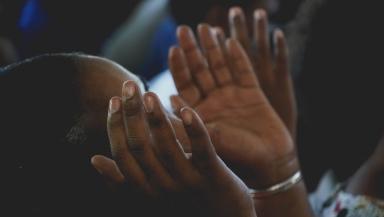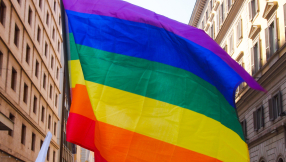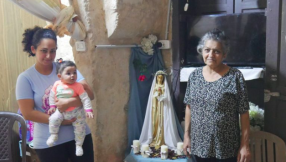
Black churchgoers have adapted so well to online church amid the pandemic some 41% of them now favor a hybrid model of in-person and online services, even after COVID-19 is no longer deemed a threat, and 7% say they would rather their church services remain digital going forward, a new study has revealed.
The study, Trends in the Black Church conducted in partnership with the Rev. Brianna K. Parker of Black Millennial Cafe, Gloo, Urban Ministries, Inc., LEAD.NYC, American Bible Society and Compassion, examined how the pandemic affected black faith communities. The data was gathered through follow-up with a group of 1,083 U.S. black adults and 822 black churchgoers who had participated in an online survey conducted April 22–May 6, 2020, according to Barna Research.
"Data show that the pandemic pushed black church pastors to innovate and challenged their ability to disciple people digitally during the pandemic. Even now, as churches emerge from COVID-era regulations, pastors and their people wonder if or how these shifts will continue to shape the trajectory of their ministry strategy," Barna Research noted.
The follow-up data showed that as of September 2020, three in five black adults had watched services online during the pandemic. Some 47% of black adults who participated in church during the pandemic said the experience made them more open to digital church, while an equal percentage who attended church online in the past six months said they favored in-person gatherings going forward.
At the height of the pandemic, many black and Hispanic churches were more likely to close due to the disproportionate impact of the pandemic on their communities. Data released by New York City showed how the coronavirus killed black and Latino people at twice the rate that it killed whites and nationwide data also reflect a similar trend. The situation forced many congregations of color to adapt quickly as a result out of necessity and congregants felt they adjusted well.
"The vast majority of black church congregants, (64% strongly agree) feels their church responded well to the pandemic. Across the board, larger churches were more likely to be ready and resourced to embrace the digital and hybrid space, compared to smaller churches," Barna Research noted.
The Rev. A.R. Bernard, leader of New York City's 40,000-member Christian Cultural Center, which caters to a strong African American audience, told The Christian Post in a recent interview that coupled with the "age of convenience" he has seen a strong appreciation for online church in his own congregation.
"The culture right now, we're in a culture of convenience when it comes to church. That's real. We surveyed our people (congregation) ... and the larger percentage of our people are enjoying service at home," he said.
Carey Nieuwhof, a former lawyer and founding pastor of Connexus Church, suggested in an op-ed earlier this year that it's likely the hybrid church will stick around even after the pandemic because a post-modern cultural shift has taken place.
"Perhaps the deepest threat to in-person attendance comes from a cultural possibility ..., that we might be entering into a relatively selfish me-centered behavior that might relegate churches even farther to the sidelines than they were pre-pandemic," he wrote.
"Among the many characteristics of post-Christian, postmodern spirituality, three stand out when it comes to future attendance trends. Postmodern spirituality is: self-directed, anti-institutional, selective," he wrote.
"In other words, people will pick and choose what they want to do. That goes from choosing a favorite preacher to listen to, to deciding to watch from home or on the go, and even (you've already seen this) tenets of the faith they are inclined to embrace and tenets they're inclined not to," he added.
Courtesy of The Christian Post













